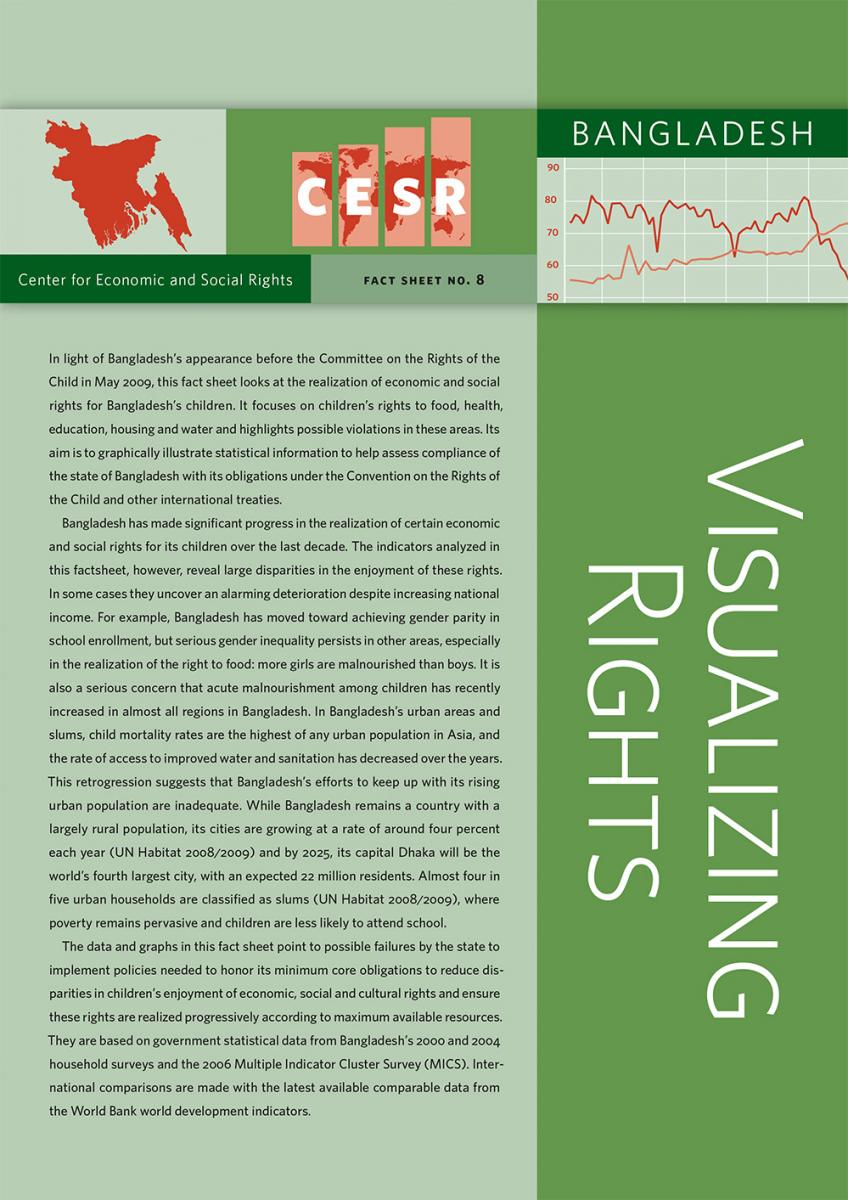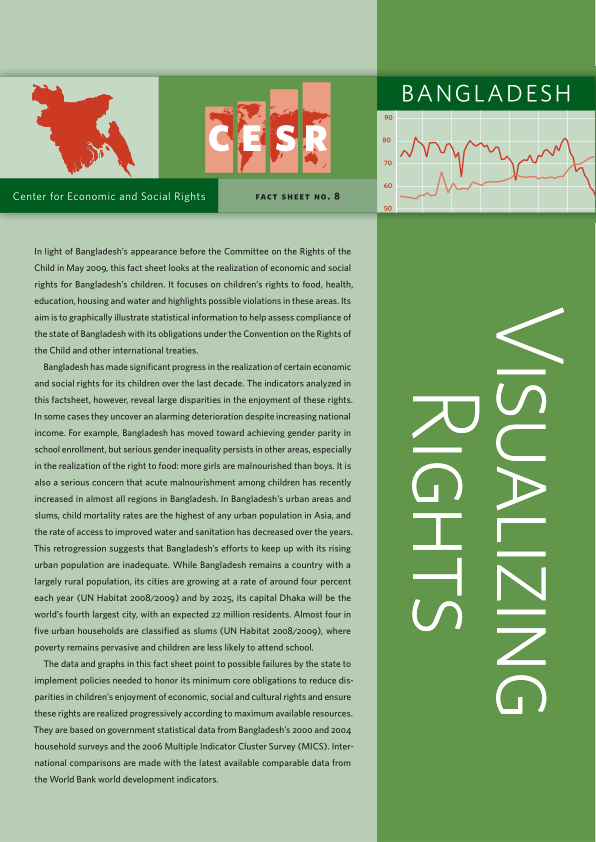 Despite an increase in national income in recent years, Bangladesh has seen a retrogression of basic economic and social rights for its children. More girls than boys are malnourished and children in slums live in great poverty and are less likely to attend school than their urban non-slum and rural counterparts.
Despite an increase in national income in recent years, Bangladesh has seen a retrogression of basic economic and social rights for its children. More girls than boys are malnourished and children in slums live in great poverty and are less likely to attend school than their urban non-slum and rural counterparts.
Data in CESR's 2009 factsheet suggest that the state is failing to implement policies needed to honor its minimum core obligations to reduce disparities in children's enjoyment of economic, social and culture rights, and to ensure that these rights are realized progressively according to maximum available resources.
The factsheet is part of CESR's Visualizing Rights series. Each factsheet focuses on a country and its economic, social and cultural rights obligations. This focus helps enable intergovernmental human rights mechanisms, such as the UN, and national and international NGOs, monitor governments' compliance with their economic, social and cultural rights obligations.
The latest available socioeconomic data is used, taken either from international sources such as the World Bank or the UNDP, or national sources, such as national statistics bureaus. This data is displayed using graphs and charts, and then analyzed and interpreted. This is meant to shed light on thecondition of governments' economic and social rights obligations.
